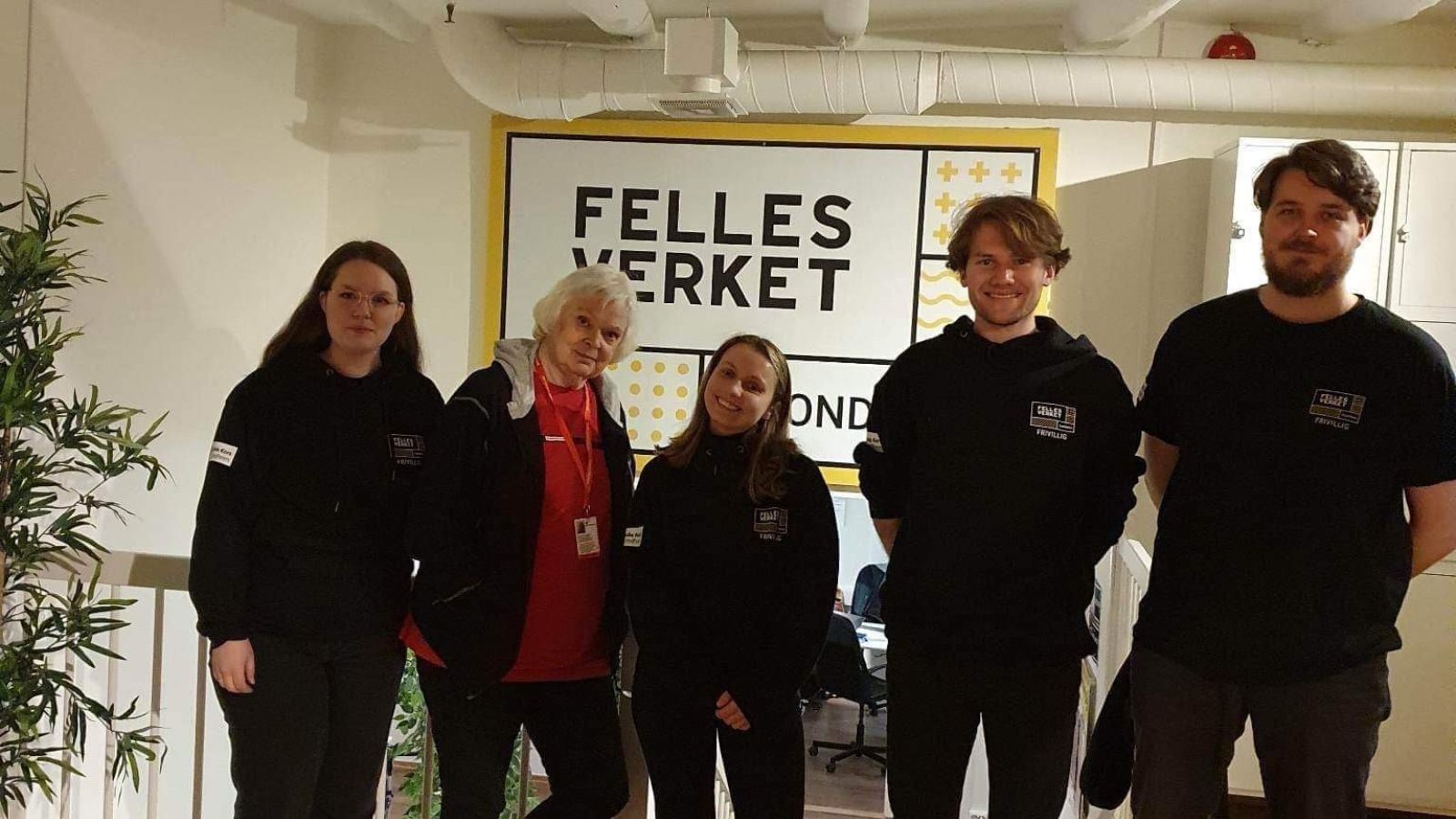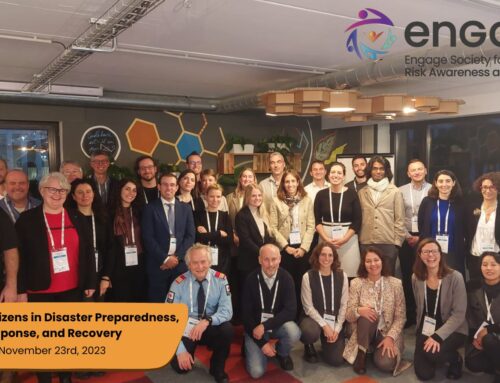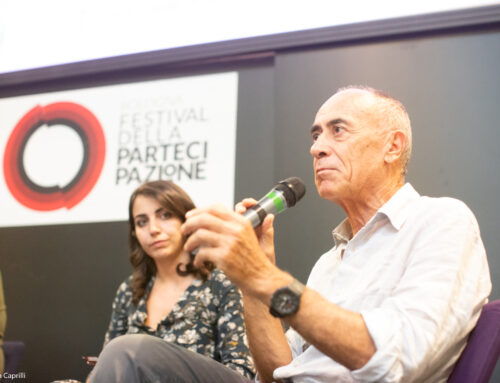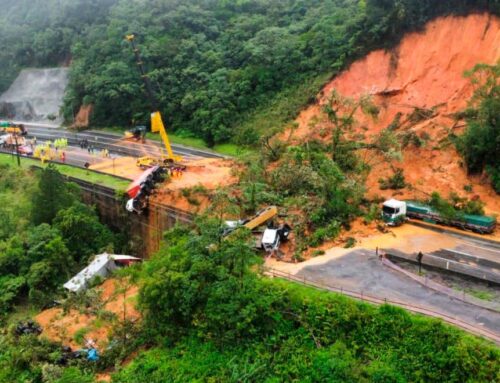On the night of February 6, 2023, a powerful earthquake struck Türkiye and Syria. The devastating earthquake had a magnitude of 7.8. In addition, there have been several aftershocks. Around 13.5 million people live in the area affected by the disaster. The earthquakes struck several provinces in southern Türkiye as well as parts of northwestern Syria. There are humanitarian needs among the affected population.
In both Türkiye and Syria, the Red Cross movement worked to get an overview of the extent of the damage, so that relief efforts could get underway quickly. In addition to all permanent residents, there are also many hundreds of thousands of refugees from the war in Syria living in warehouses, factory premises, or cramped apartments, and who are therefore extra vulnerable. The most important task was to save lives and get people to safety. In the period following an earthquake, there are often aftershocks, landslides, and other dangerous situations due to damaged buildings and structures that may collapse. The population of this area has experienced earthquakes in the past, but there is a lot of uncertainty after an earthquake of this magnitude. People do not know when it is safe to go home, if their jobs will be affected, and if their loved ones are okay.
Many inhabitants of Trondheim felt the anxiety for loved ones in affected areas — parents, siblings, aunts and uncles, friends and old schoolmates, and the challenges of connecting did not make it any easier. The Trondheim municipality established a contact telephone and dialogue with various organizations consisting of people from these areas, however, these were primarily adults and we in Trondheim Red Cross discovered that young people lacked a similar opportunity or did not use the municipality’s services.
In the city center of Trondheim we have an activity house for young people aged 15 to 25, a place where they can be together with adult volunteers, where they can take part in free activities, receive free food, take part in educational courses and receive help with their homework in addition to being a place where they can just be with others and have a good time. Here we saw many troubled young people, who worried about a grandma, about a father, about siblings, cousins, and friends they had in the affected areas. We cannot establish contact or give them answers to what they worry about, but we can give them information from our sister associations in Türkiye and Syria, and we can give them psychosocial support. Here we saw a new area for our support, namely support for people who are not directly affected by such events, but who fear that they have or do have family and friends who are affected. To strengthen our staff, we therefore brought in Preparedness Guards, as a supplement to the volunteers at the activity house.
 The Trondheim Red Cross is prepared to help in the event of serious incidents in our own local community. This is done by recruiting volunteers, who are trained in first aid, psychosocial first aid, care, inclusion, and emergency preparedness. Our Preparedness Guards are a valuable tool when something unforeseen happens, and the activity is a low-threshold service. After completing the necessary training, the volunteer will be contacted if a serious incident occurs where their contributions are needed. Red Cross volunteers in the Preparedness Guard are given annual training in first aid, emergency preparedness, mental health support and more. With this expertise, they will be able to contribute in ways that require a higher professional level than can be expected from the general public.
The Trondheim Red Cross is prepared to help in the event of serious incidents in our own local community. This is done by recruiting volunteers, who are trained in first aid, psychosocial first aid, care, inclusion, and emergency preparedness. Our Preparedness Guards are a valuable tool when something unforeseen happens, and the activity is a low-threshold service. After completing the necessary training, the volunteer will be contacted if a serious incident occurs where their contributions are needed. Red Cross volunteers in the Preparedness Guard are given annual training in first aid, emergency preparedness, mental health support and more. With this expertise, they will be able to contribute in ways that require a higher professional level than can be expected from the general public.
In Trondheim, the Preparedness Guards became an activity after 2020, and was established primarily after the Trondheim Municipality needed assistance with vaccinations during the COVID-19 pandemic. At this time, we saw that we needed volunteers with primarily psychosocial first aid expertise, to support, comfort and reassure people who were in an unfamiliar, and in some cases frightening, situations.
The efforts of the emergency responders at the vaccine centre were important, and the Trondheim Red Cross received a lot of feedback about how important this effort and security had been for many. In addition, the Preparedness Guards were used when the Trondheim Municipality needed psychosocial support for newly arrived refugees from Ukraine. In this case, their role was to support the adults, and to offer activities for the children. This was an important supplement to the public employees in the municipality, and an important humanitarian role.
Now the Preparedness Guards were also used in connection with an earthquake far away, a task we perhaps had not seen likely when we started the initiative. Yet, once again, it turns out that having knowledgeable fellow human beings like these volunteers made a significant difference to the young people who came to us for support. They stated that they became calmer, they were able to eat, they had someone to talk to about their concerns, and they felt that they were taken seriously. Also, for the volunteers at the activity house, the Preparedness Guards became an important support, as they now had someone with even more competence in psychosocial support who they could work with, and in this way they could provide the best assistance to the young people as possible.
A particularly important aspect was the information about what our sister associations in Syria and Türkiye were doing, also with volunteers as a valuable resource. As of February 21, the status in Syria was that thousands of volunteers and staff of the Syrian Red Crescent have been in action in the worst-hit areas. At the time, more than 350,000 people were internally displaced after their homes were destroyed or severely damaged as a result of the earthquakes. The mobile health teams from the Syrian Red Crescent administered first aid, evacuated, and transported the wounded to hospital. In the period 6 February to 10 March, the Syrian Red Crescent has assisted 2.5 million people with humanitarian aid services in the earthquake-affected areas. This includes health, water and sanitation services, protective measures, and legal assistance services. The Syrian Red Crescent also runs family reunification and provides psychosocial support.
In Türkiye, thousands of volunteers and staff also contributed to the relief efforts. As of February 21, the Türkiye Red Crescent had distributed over 55 million hot meals and nearly 55,000 tents. Twelve mobile health clinics provided medical and psychosocial first aid. There was a great need for blood for the injured and the Türkiye Red Crescent redirected blood donations to the affected areas. They also recruited several new blood donors and have organized 300 blood banks in the country.
The Norway Red Cross supports local Red Crescents in Türkiye and Syria through our offices in the countries and provides financial support. The Norwegian Red Cross is assisting the Syrian Red Crescent with a comprehensive health effort, and has sent large tents with furnaces, water pumps, water purification equipment and other emergency aid that the Syrian Red Crescent needs to help earthquake victims.
The Trondheim Red Cross also supported the local work in the affected areas by contributing to financial support, yet we see that we also made an important contribution for those who live in our city – through psychosocial support, by being present, offering food, humanity, and presence. This is something we can contribute with through our most significant resource- the volunteers.
You can read more about the work of the Preparedness Guards by following this link.
Author: Marita Hoel Fossen (Trondheim Red Cross)





